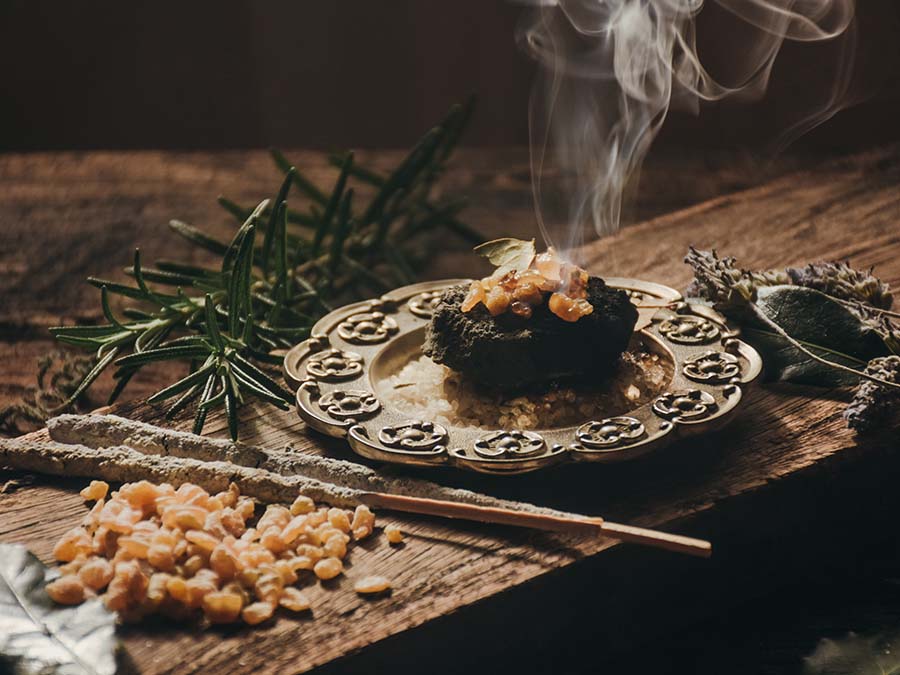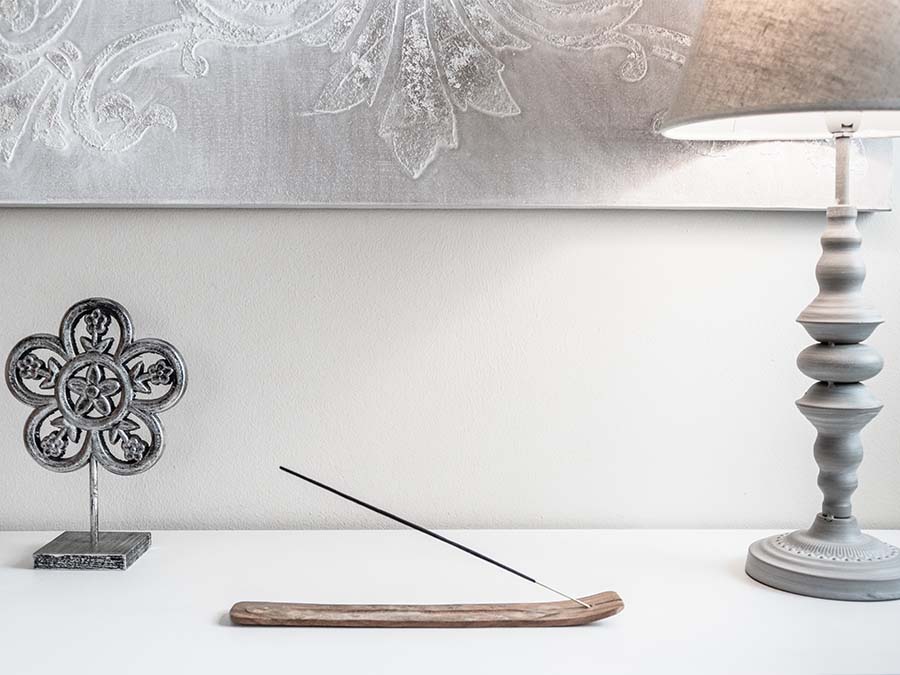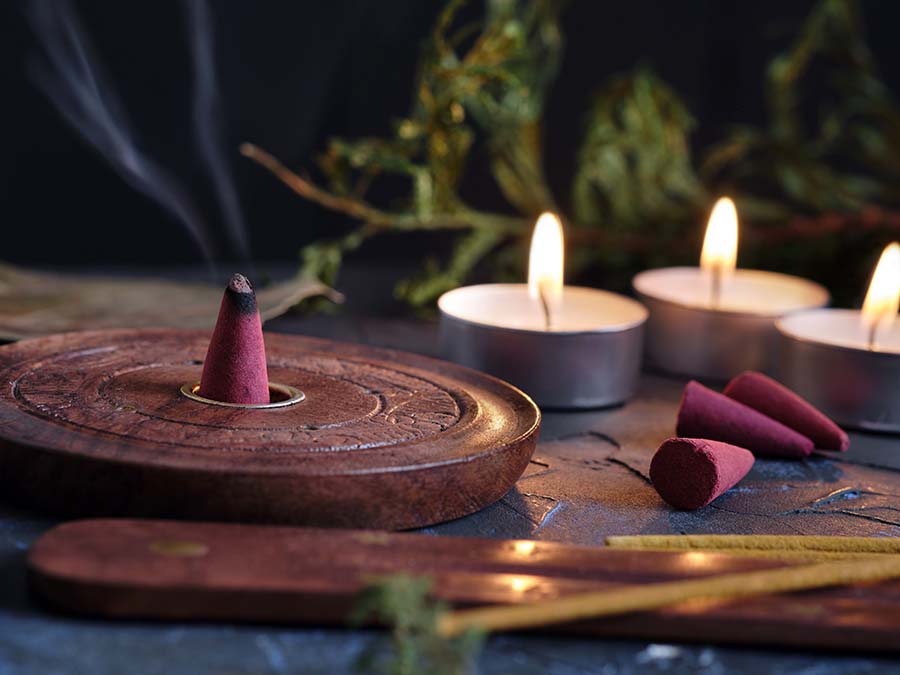
Incense, often associated with spirituality and relaxation, is more than just a pleasant aroma. Its roots delve deep into the cultural bedrock of many societies, playing pivotal roles in religious ceremonies, ritual purification, and even in the domains of health and personal well-being. This blog post explores the historical and cultural significance of incense from ancient times to the present day, highlighting its use in India, Japan, and the Middle East.
In India, incense is an integral part of daily life and spiritual practice. It has been used since ancient times, with references found in the Vedas, India’s oldest sacred texts. Incense burning in India is primarily associated with religious ceremonies and meditation, serving as a means to purify the surroundings and elevate the soul. The scents used are often deeply symbolic; sandalwood, for example, is popular for its purifying properties and is believed to bring one closer to the divine.
One cannot discuss Indian incense without mentioning the traditional ‘Dhoop’ and ‘Agarbatti’. These are made from a blend of natural ingredients such as herbs, resins, and essential oils. The art of making Agarbatti has been passed down through generations and is considered a sacred craft, with specific regions like Mysore and Bangalore being renowned for their distinctive incense.

Moving eastward to Japan, the use of incense is a refined art form connected deeply with the practice of Zen Buddhism. Incense in Japan transcends mere aroma; it is a path to spiritual enlightenment. The traditional incense ceremony, known as ‘Kōdō’, which means “Way of Fragrance”, is akin to the tea ceremony and is one of the classical Japanese arts of refinement. It involves appreciating subtle fragrances and can be a meditative practice focusing on respect, purity, tranquillity, and harmony.

Japanese incense is typically less smoky and more subtle compared to Indian incense. Ingredients like agarwood, sandalwood, and a variety of other aromatic woods and herbs are meticulously blended to create a tranquil and serene atmosphere, facilitating meditation and spiritual contemplation
The Sacred Scents of the Middle East
In the Middle East, incense has been used for thousands of years, notably for religious and ceremonial purposes. Frankincense and myrrh, two of the most historically significant scents, originate from this region. Both were once considered valuable commodities for trade, as valuable as gold, and were often gifts given to royalty and deities.
Burning incense in the Middle East is traditionally a gesture of hospitality, purification, and protection. It is common to pass incense among guests in the home, symbolising a warm welcome and the warding off of evil spirits. This practice is particularly prevalent in countries like Oman, where the burning of frankincense is a daily ritual.

Modern Practices and Cultural Continuity
Today, the use of incense has transcended its religious origins in many parts of the world, becoming a part of holistic wellness practices that emphasise natural living and mindfulness. Modern aromatherapy often incorporates elements from ancient traditions, using incense for its supposed benefits in enhancing concentration, alleviating anxiety, and promoting relaxation.
Despite these shifts, the traditional roots of incense burning remain strong. In India, Japan, and the Middle East, these ancient practices have not only survived but continue to flourish, often integrated into contemporary spiritual and cultural rituals that respect and preserve their historical significance.
Incense continues to be a bridge between the past and present, carrying with it the aromas of history, culture, and spirituality. As we light a stick of incense today, we are reminded of the timeless nature of this practice and its universal appeal in connecting us to something greater than ourselves, whether it be the divine, nature, or our inner peace. This deep, aromatic connection to our past is what truly makes the burning of incense a globally cherished ritual.
” One of the best wholesale companies I have come across in over 30 years. A regular customer, thank you Indian Connection! “
” Their superb range of products and friendly support has helped me develop a vibrant high street offering! “
” In India I was in oil heaven, the freshness and quality I have not been able to get. Your oils are it!! Wow, I will be stocking! “
” Our order arrived really fast, and that we’re very pleased with everything. Thank you! Best wishes from Denmark .”
” A big thank you for my order. It was like Christmas!! Everything looks brilliant; I can’t tell you how pleased I am. Thank you! “
” I recently placed my first order with The Indian Connection and I have been really pleased with the stock and the delivery time.”
” One of the best wholesale companies I have come across in over 30 years. A regular customer, thank you Indian Connection! “
” Their superb range of products and friendly support has helped me develop a vibrant high street offering! “
” In India I was in oil heaven, the freshness and quality I have not been able to get. Your oils are it!! Wow, I will be stocking! “
” Our order arrived really fast, and that we’re very pleased with everything. Thank you! Best wishes from Denmark .”
” A big thank you for my order. It was like Christmas!! Everything looks brilliant; I can’t tell you how pleased I am. Thank you! “
” I recently placed my first order with The Indian Connection and I have been really pleased with the stock and the delivery time.”
” One of the best wholesale companies I have come across in over 30 years. A regular customer, thank you Indian Connection! “
” Their superb range of products and friendly support has helped me develop a vibrant high street offering! “